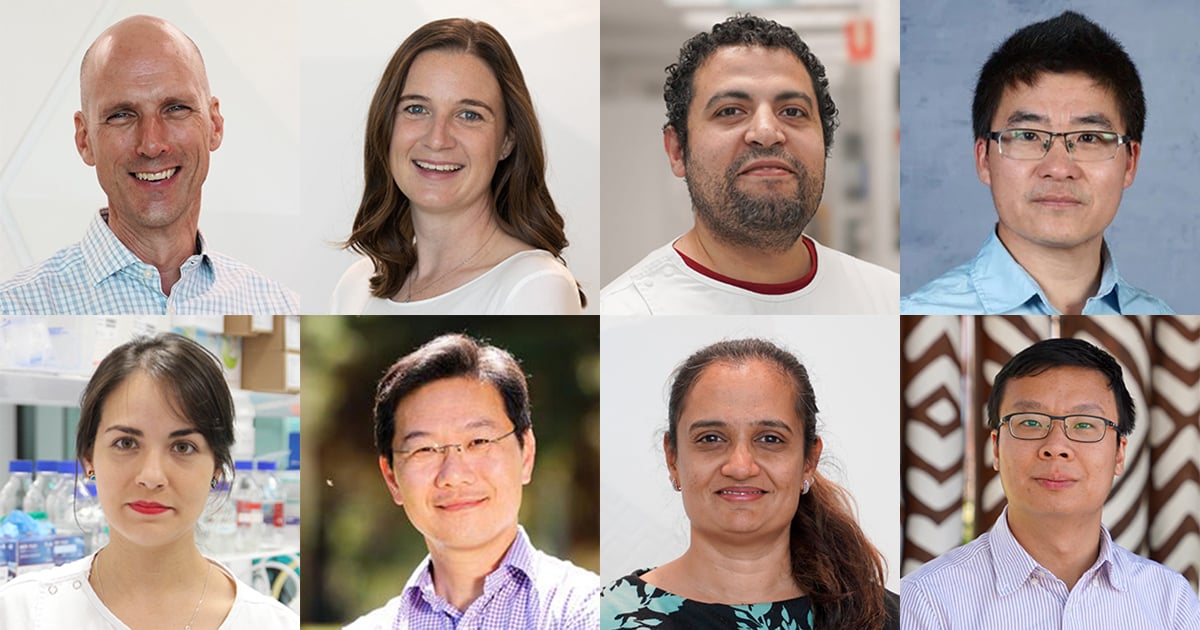
We’re delighted to share that eight childhood cancer researchers at The Kids Research Institute Australia have been awarded over $2 million in transformative grants from Cancer Council WA to advance their pioneering work in improving cancer treatments and outcomes for patients in Western Australia and around the world.
Transforming cancer treatment through immunotherapy
Professor Joost Lesterhuis, Head of the Cancer Centre and the Sarcoma Translational Research Team, has received a Senior-Career Fellowship for his work to harness the immune system to battle cancer cells more effectively.
The team have already uncovered two new immunotherapies that successfully activate the immune system to attack cancer cells. They are currently developing these into medicines that are ready for trials in children and adults.
Safeguarding children’s brain development
Dr Annabel Short, a post-doctoral researcher in the Brain Tumour Research Team, has received a Mid-Career Fellowship to develop better, safer therapies by studying how brain tumours interact with the immune system and how treatments affect the growing brain.
In the lab, Dr Short uses advanced new laboratory methods that mimic children to study how brain tumours grow, how the immune system responds, and test new treatment approaches, such as
combining current options like radiotherapy with newer ones like immunotherapy and targeted drugs.
Making immunotherapy work for kids
Dr Omar Elaskalani, a post-doctoral researcher in the Sarcoma Translational Research Team, has received an Early-Career Fellowship to improve immunotherapy for children with cancer. While this type of treatment has worked well in adults, it often fails in kids because their immune systems are still developing.
Dr Elaskalani’s team has created the world’s first mouse models that mimic a child’s immune system. Using these, they’ve discovered that children’s immune cells burn out too quickly when fighting cancer. The project will test ways to keep these cells active for longer, helping treatments work better and reducing the need for harsh chemotherapy.
New RNA therapy to target resistant cancers
Dr Tao Wang, a post-doctoral researcher in the Sarcoma Translational Research Team, has received a project grant for his work in developing a new RNA-based cancer treatment.
While immunotherapy has been successful for many cancers, some evade the immune system’s detection. Dr Wang’s team aims to create a safe RNA-based drug that mimics viral infections using advanced nanotechnology, increasing response to immune attack in patients whose cancers resist current treatments.
Blocking key protein to boost cancer immunotherapy
Dr Lizeth Orozco Morales, a post-doctoral researcher in the Sarcoma Translational Research Team, has received a project grant to study how blocking a particular protein, PPARy, could help the immune system refuel and better fight cancer cells.
Drugs that block the PPARy protein are currently being developed. This project will now explore which cancers respond best to these drugs, including childhood cancers, and identify markers that can predict patient response. This work could lead to safer, more effective treatments and support future clinical trials.
Boosting the efficacy of immunotherapy for children with high-risk leukaemia
Associate Professor Laurence Cheung, Co-Head of the Leukaemia Translational Research Team has received a project grant to address a major gap in cancer immunotherapy.
Instead of modifying adult treatments for children, his team will create immunotherapies specifically designed for children's immune systems. Ultimately, they envisage translating findings from experimental models to clinical studies, aiming to improve survival outcomes for children with high-risk leukaemia.
Faster, less invasive testing for young adults with brain cancer
Dr Hetal Dholaria, a paediatric and AYA (adolescents and young adults) oncologist at Perth Children’s Hospital, Medical Lead of the WA Youth Cancer Service, and clinical researcher at The Kids, is leading a project to improve diagnosis, treatment, and monitoring for AYAs with brain cancer.
Currently it can take up to eight weeks to receive a full diagnosis. Dr Dholaria’s team is trialling a new technology that could reduce this to just one day – dramatically accelerating access to treatment. The project will also explore a less invasive approach to track how the cancer responds to therapy over time.
This is the first initiative in Western Australia to focus specifically on the AYA age group, which often falls between the gaps of paediatric and adult cancer services.
Tackling bone loss in childhood leukaemia
Dr Vincent Kuek, a post-doctoral researcher in the Leukaemia Translational Research Team, has received a project grant to explore a new treatment approach for children with high-risk B-cell acute lymphoblastic leukaemia (B-ALL).
Childhood B-ALL patients not only face poor survival rates but also suffer from bone loss and weakened immune systems due to the disease and its treatment. Researchers will test a new medicine that treats the cancer more effectively and protects bone health at the same time.
Congratulations to our brilliant researchers on this well-deserved recognition. Their hard work and innovation continue to bring hope to children and families affected by cancer across WA and beyond.
